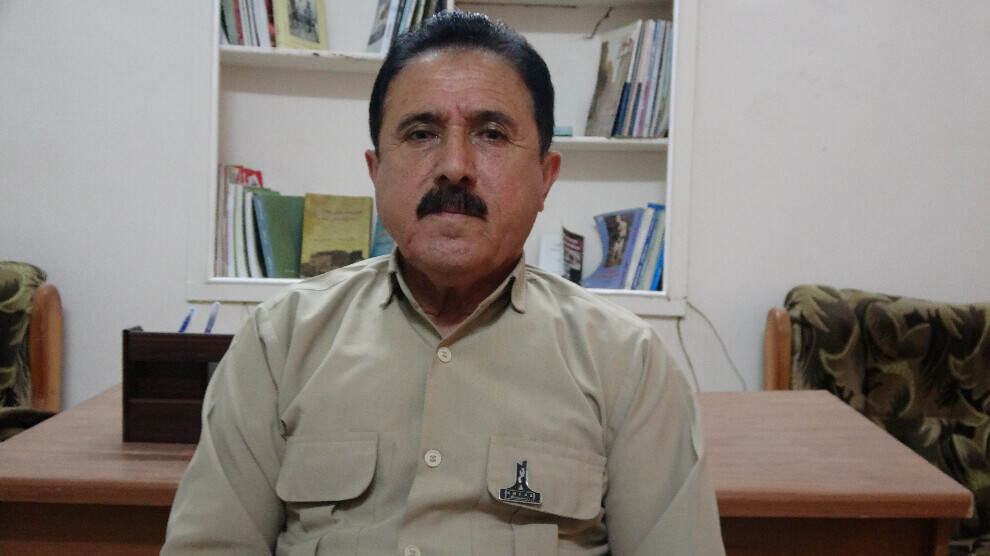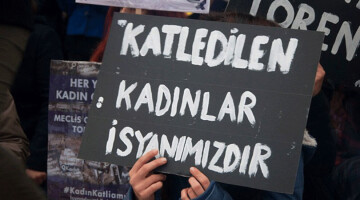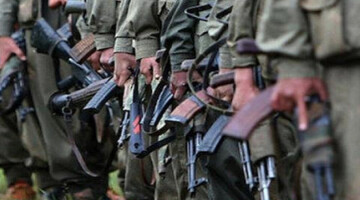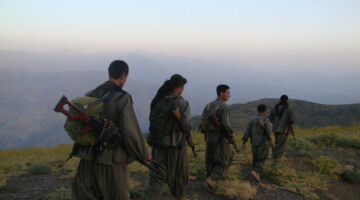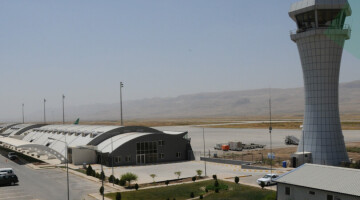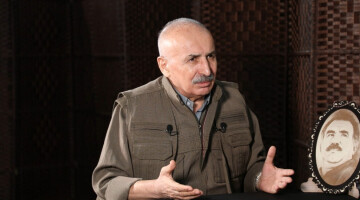Author Raber Reşid, a participant in the 1991 uprising and a leading figure in Kirkuk, spoke to ANF about Raperîn and the events in the preparation process for the uprising on the occasion of the 31st anniversary of freedom, the Baath regime's attack on Kirkuk and South Kurdistan, the mass migration of people from South Kurdistan, the political situation in Kirkuk after 2003, as well as the Kurds' current situation following the events of 16 October 2017.
“Some leaders run abroad”
In reference to the Raperîn (Uprising) of the people of South Kurdistan against the Baath dictatorship, Raber Reşid said that "after 1988, most of the armed forces moved to Iran, and some of them dispersed, stating they had to surrender to the Baath regime. Because they lacked the strength to live. Unfortunately, other leaders ran abroad and abandoned the revolution. Saddam Hussein's regime attacked and conquered Kuwait on 2 August 1990, during these events. This also resulted in a highly sensitive juncture in the region. The Peshmerga forces did not recover from this disaster until the spring of 1991.”
“The Baath arrested the men of the town”
Raber Reşid, who is also a member of the Dêrîn Peshmerga, pointed to the war he was also involved in and said: “During the uprising, I was in Kirkuk's Pirdê district. Many Dêrîn Peshmerga tried to move the peshmerga forces to Kirkuk on 11 March at 6 a.m., but we lost many people due to a lack of unity within the peshmerga ranks and the fierce defense of Baath. On the night between 19 and 20 March, when they initially invaded the Rehîmava area and liberated it, Elî Hesen Mecîd, also known as Ali Kimyewi, detained the town's young people and men in order to prevent them from assisting the peshmerga forces. The Kurdistan Front was founded at the time so that all forces on both sides could participate in the process.
“From Rojhilat in order to save Kirkuk”
We had numerous martyrs on March 19-20, including a martyr from Rojhilat who came to rescue Kirkuk with Shiite Party comrades in the Rehimawa district. His name was Adil Rojhilati, may his soul rest in peace. The peshmerga who arrived in Kirkuk from the Rehimawa district reported crying due to the shouts of their mothers and siblings. Even when Kirkuk's men and young people were imprisoned, the women of Kirkuk paved the way for the Peshmerga to fight the Baath administration. Kirkuk was not totally liberated because Iraqi soldiers were battling at Khaled Base, where we lost many lives. However, for the first time in its history, the Kurdish revolution was liberated."
“We thought at first we would have a bleak future”
The strategy to liberate Kirkuk was developed in Pirdê, but as a people with limited experience, we felt doomed from the start of Raperîn. Because every power seeks its own gain, they were collecting weapons, ammunition, and a variety of other things for themselves. After defeating the southern Iraqi movement, Saddam Hussein's Baath regime dispatched troops and security forces to Kirkuk. Peshmerga forces were also forced to retreat. Unfortunately, the people of Kirkuk were severely harmed, and as a result, the people of South Kurdistan were forced to evacuate there. International forces entered the region and built the 36th Parallel line to defend South Kurdistan.
31 years after the liberation of Kirkuk, the city is once again occupied by the Iraqi army. The greatest evidence that there was a power that wanted the situation in Kirkuk to be as it is today (namely the PDK) is that after the events of 16 October, they did not make a serious effort to get the Kirkuk governor and parliament.
Kurds have been removed from numerous city administrations in Kirkuk after 14 years of Kurdish administration, and have been replaced by Arabs. This was caused by the Kurdistan region's wrong politics, which divided the city's votes for power. This wrong policy is responsible for Kirkuk's current situation.”

